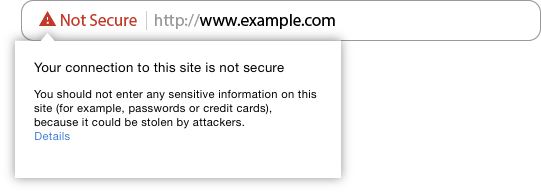View by Category
View by Author
Archive
Release of Chrome 68 and SSL Certification: What law firms need to know!
Posted by Jennifer Macqueen
Google will be releasing the updated Chrome 68 any day now – an exact date has not been announced we just know it will happen sometime in July 2018.
This new version of Chrome will include the fixing of bugs and feature enhancements. It will also involve a significant update to security with Google basically requiring that all websites have SSL certification. For websites without SSL, visitors arriving to the site will be met with the following bright red “Not Secure” message in their URL bar:

SSL (Secure Sockets Lawyer) is a protocol which creates a secure connection, between a client or customer and the server, over which information is sent. An SSL connection works by using a cryptographic system to protect information and transactions. The complexities of the SSL protocol are completely invisible to clients. A user can only tell if a site is secure by looking for the green padlock icon in the browser bar. See Firm Evolution’s above browser bar with “Secure” in green next to the padlock. Clicking on that lock icon opens a display of the SSL certificate details.
SSL certificates are issued to either companies or legally accountable individuals working on behalf of companies (such as website designers, developers, consultants, IT folks). A knowledgeable web person can handle all the necessary details of the SSL certification application process. All sites launched after the release of Chrome 68 should have SSL certification. Owners of sites launched pre-July 2018, need to get their SSL before Chrome 68 is released or expect to receive client feedback about the “not secure” notification on their website which would be a tad bit unnerving for your firm’s clients.
Firm Evolution’s web development partner is offering three different options for obtaining these certificates:
- Cloudflare SSL & CDN (no cost)
- Free SSL, for companies that are hosted with us
- SSL certificates from the major SSL companies
If your law firm has not yet addressed this SSL issue and needs more information or assistance obtaining the certification, please contact us for assistance.



